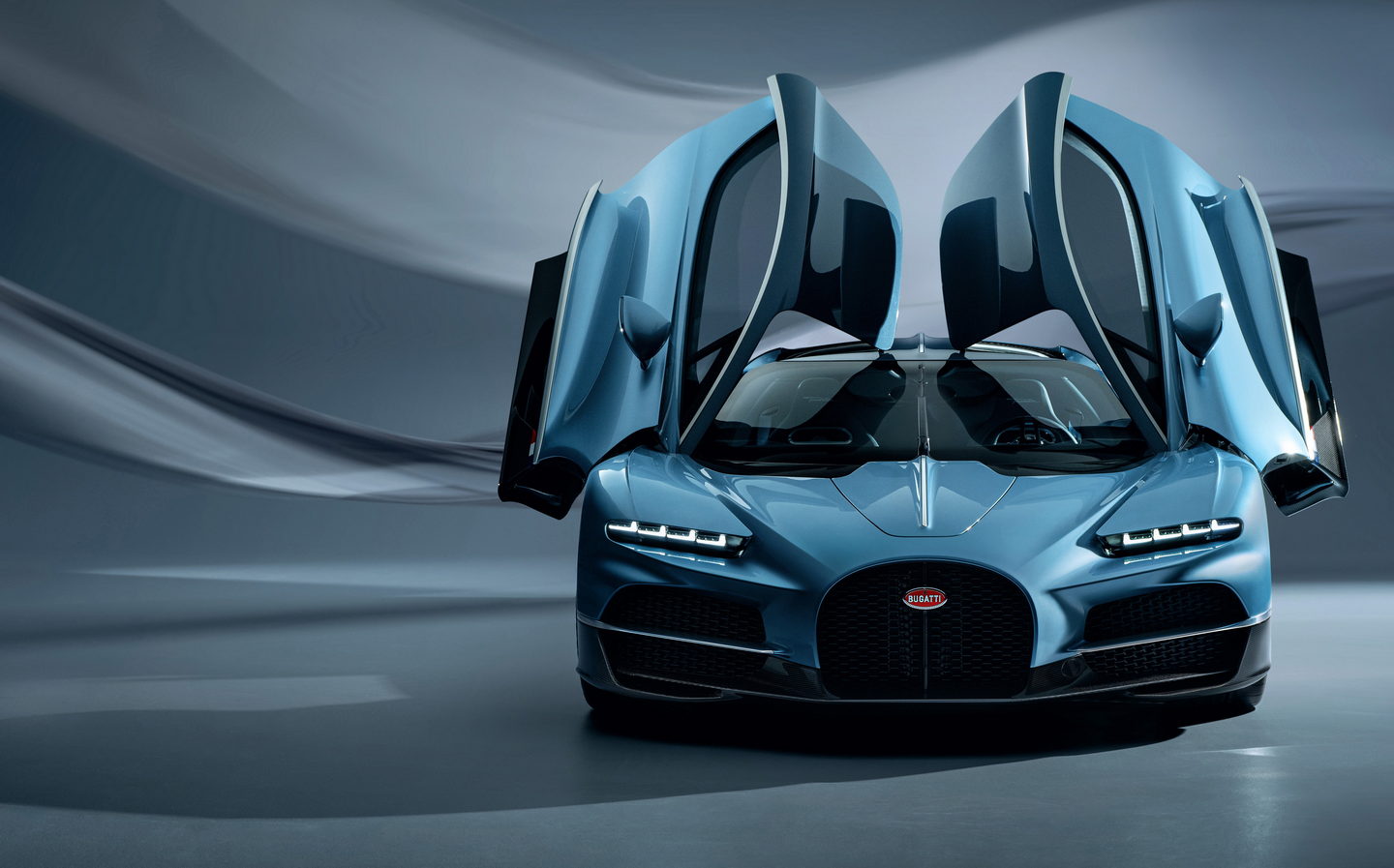Five best supercars to buy in 2025
Super — the only word for them
It might seem a tad gauche to be lauding supercars in the current cost-of-living crisis, but the fact of the matter remains that we all dream about lottery-win wheels – and, frankly, said dream cars are rarely five-door electric SUVs with a range of over 300 miles.
Despite the fact in recent years there has been a shift towards the electrification – either partial or otherwise – of supercar drivetrains, recent consumer pushback against the EV revolution means you can still get your pure-petrol kicks in a glamorous body these days.
That said, three of our choices here are hybrids, two of them plug-in variants, but good news for fans of blood-and-thunder V8s and V12s: the Brits on this list are flying the flag of furious noise for as long as they can with their entries.
Here, then, are five of the best supercars for 2025 and beyond.
Aston Martin Vanquish
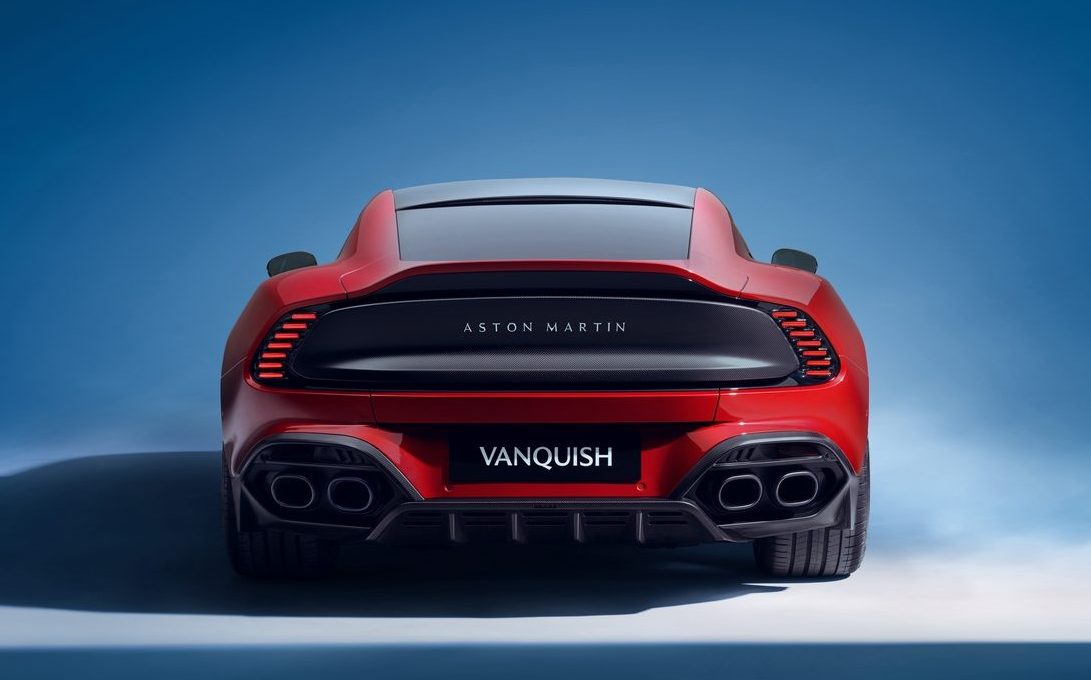
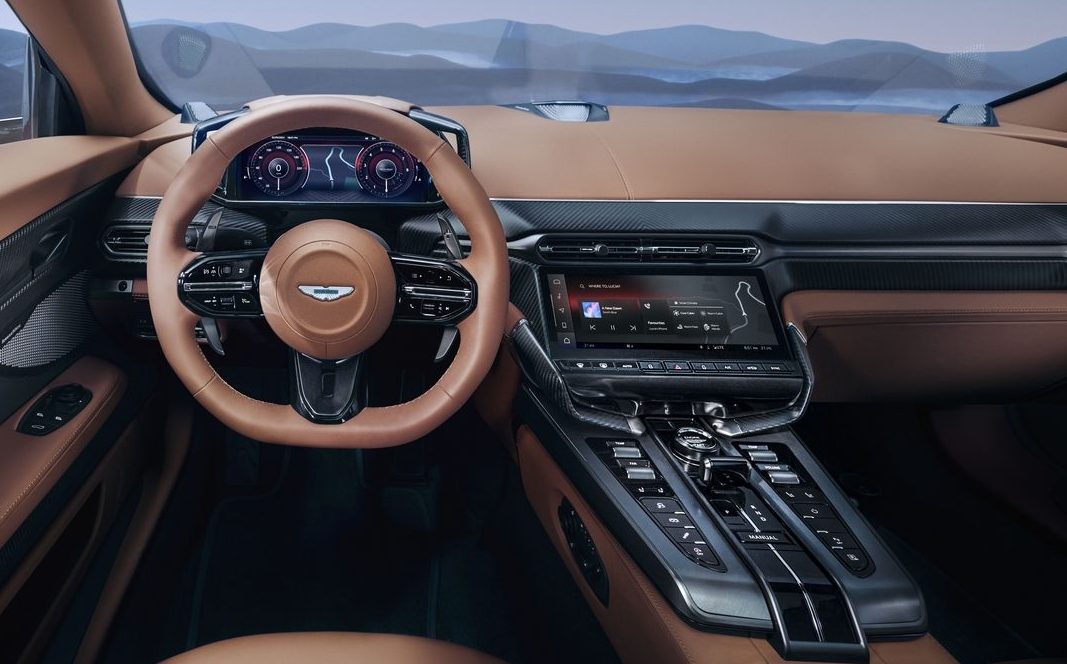
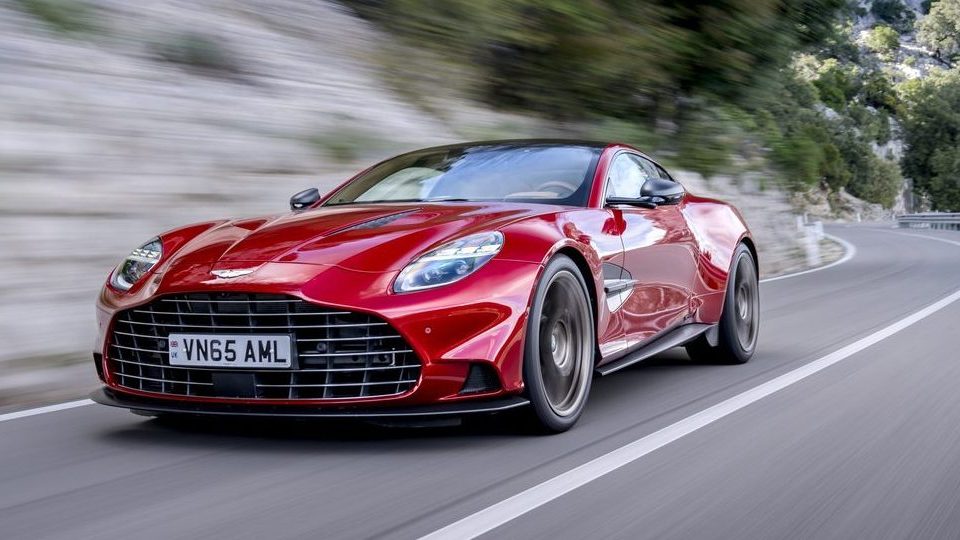
From £330,000
OK, slight cheat here, as technically the Vanquish is a grand tourer (GT) and not really a supercar. But Aston itself refers to it as a “Super GT”, and anything with 824bhp, a 0-62mph time of 3.3 seconds and a top speed of 214mph is a supercar in our book, no matter where its engine is positioned in its body.
The third iteration of the Aston Martin Vanquish achieves these monumental numbers without resorting to hybridisation, either. Under the bonnet is a 5.2-litre twin-turbo V12 and it’s likely to be one of the last of this particular engine configuration that you can buy in the automotive world, so bag one now — if you’ve got the requisite £330,000 — while you still can.
Brilliantly, the V12 sounds terrific and offers up truly mind-bending straight-line performance (as you’d expect), but the even better news is that the Vanquish is arguably finer in the corners than it is at shortening every straight piece of road on the planet into an insignificance.
Superb steering, immense balance, masses of traction — considering it’s only rear-wheel drive — and absolutely fabulous suspension makes the new Vanquish an utter delight to drive. It has a slightly firm low-speed ride, and the interior only has two seats, but that’s about where our very minor criticisms of this magnificent super-GT start and end.
Bugatti Tourbillon
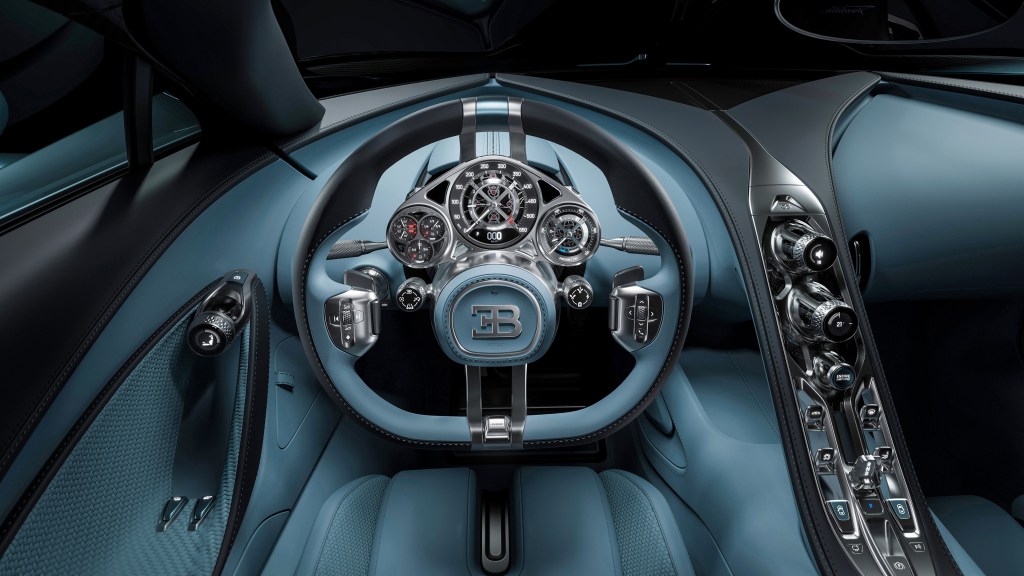
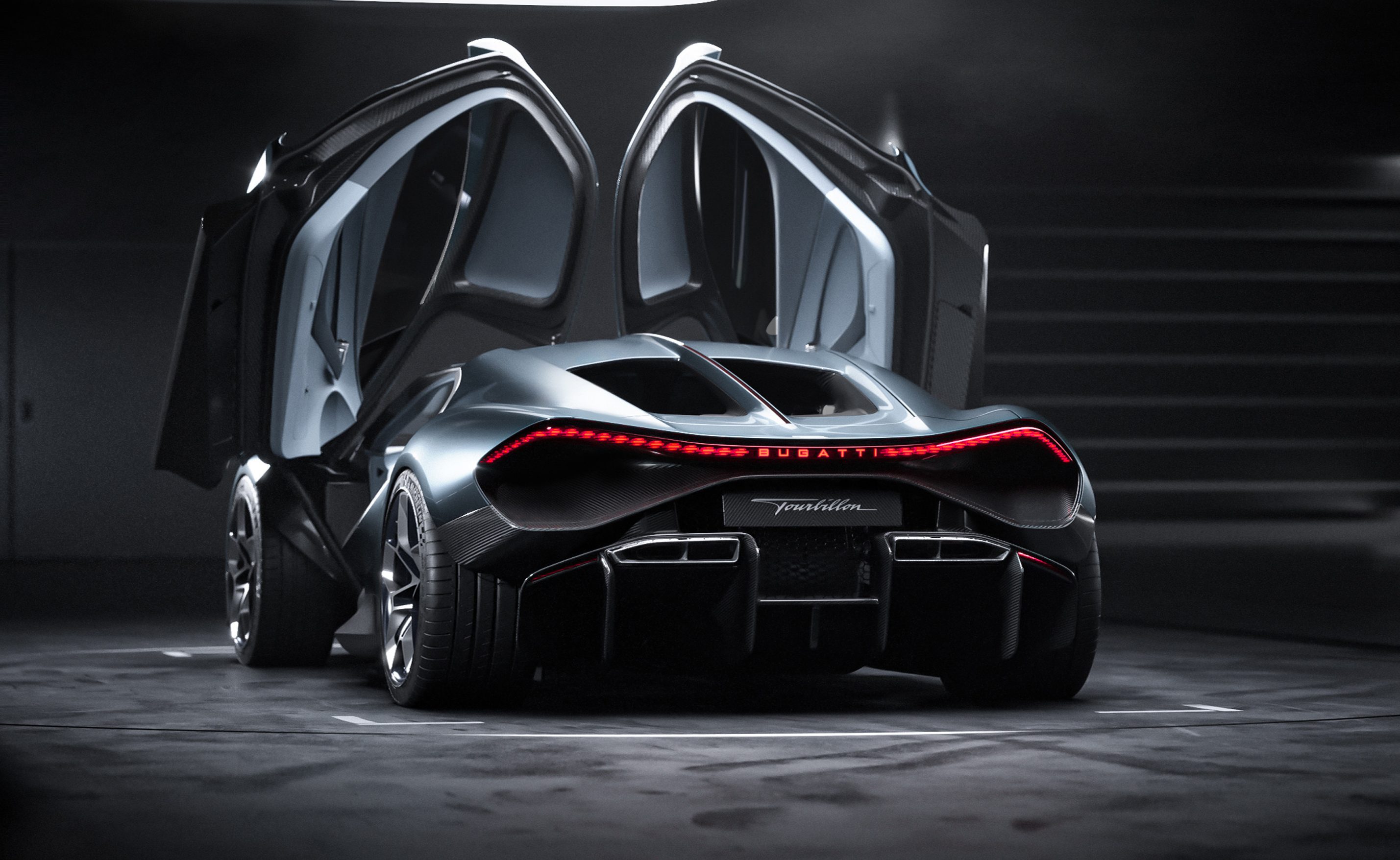
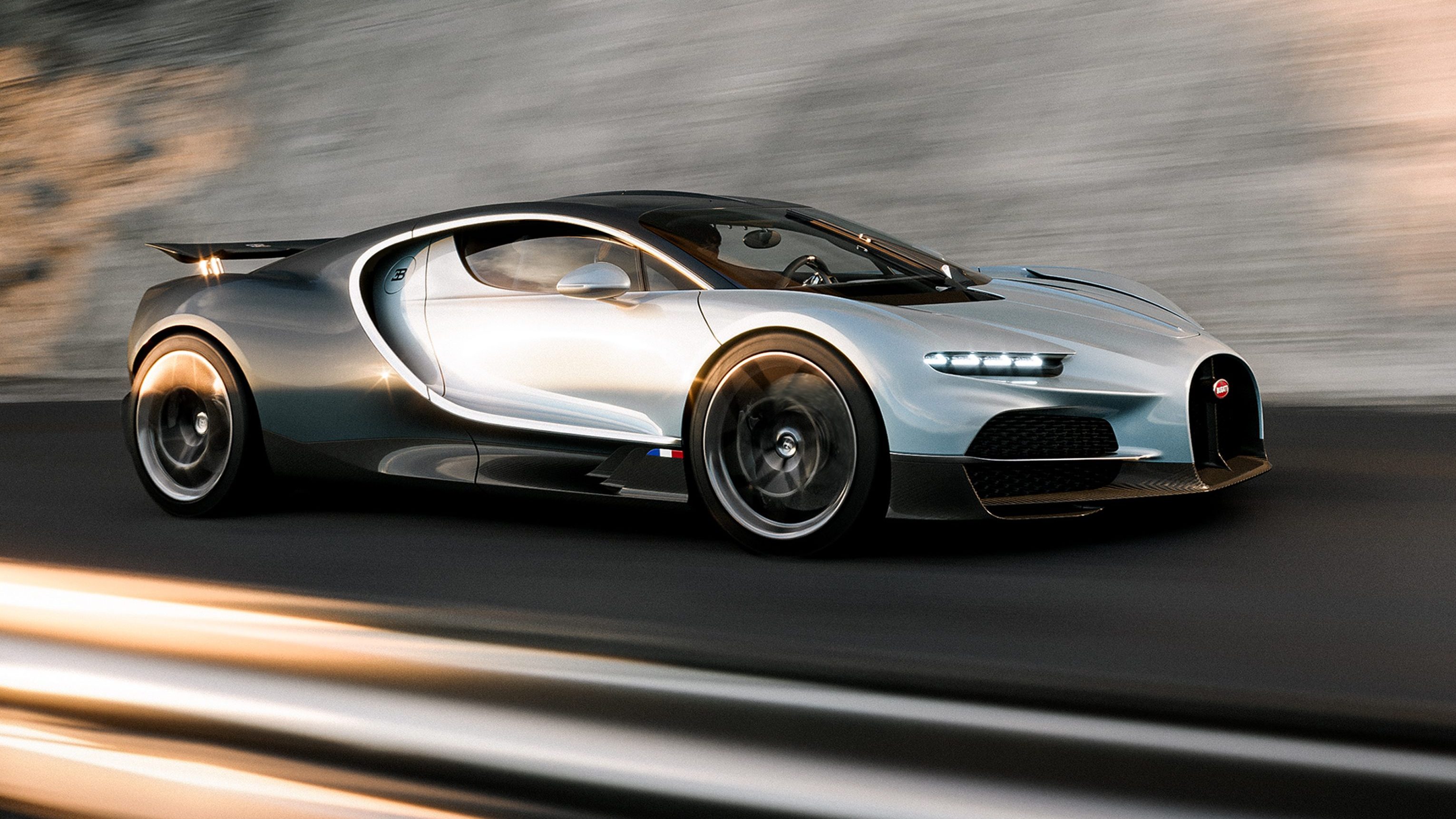
From £3.2m
Bugattis are super-rare and super-expensive, and the Tourbillon is no exception. It’s more than three million quid to get your hands on one and only 250 are planned for production, so you’d better move almost as fast as the car itself if you want to land one.
Like its Veyron and Chiron predecessors, the Tourbillon has a 16-cylinder engine, but whereas the former two had turbocharged 8-litre units developed by the Volkswagen Group and formed in a ‘W’ configuration, the new car’s engine is a naturally aspirated 8.3-litre V16 built in conjunction with Cosworth.
On its own, the petrol engine produces 986bhp, but Bugatti manages to elicit a bonkers 1,775bhp from the drivetrain because the Tourbillon is a plug-in hybrid. A 25kWh battery pack powers three electric motors, meaning that you’ll be able to go 276mph flat out if you have the nerve (and the right conditions to do so legally and safely), while running 0-62mph in just two seconds.
And while the exterior and interior are special enough as it is, there are also some proper hyper-rich details which will delight buyers. Such as titanium dials in the instrument cluster, which are studded with true sapphire and ruby jewels for the maximum bling factor.
Ferrari F80
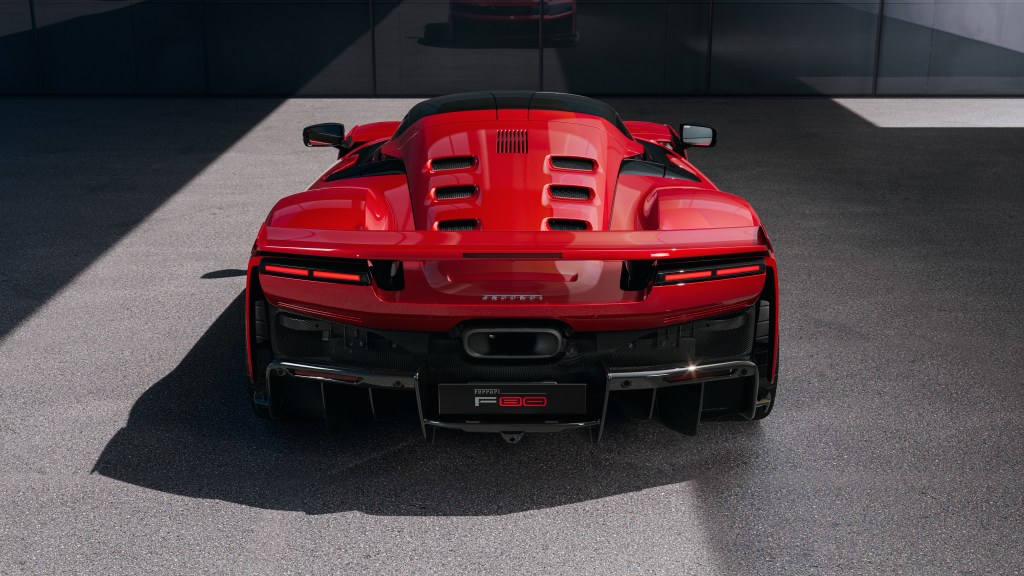
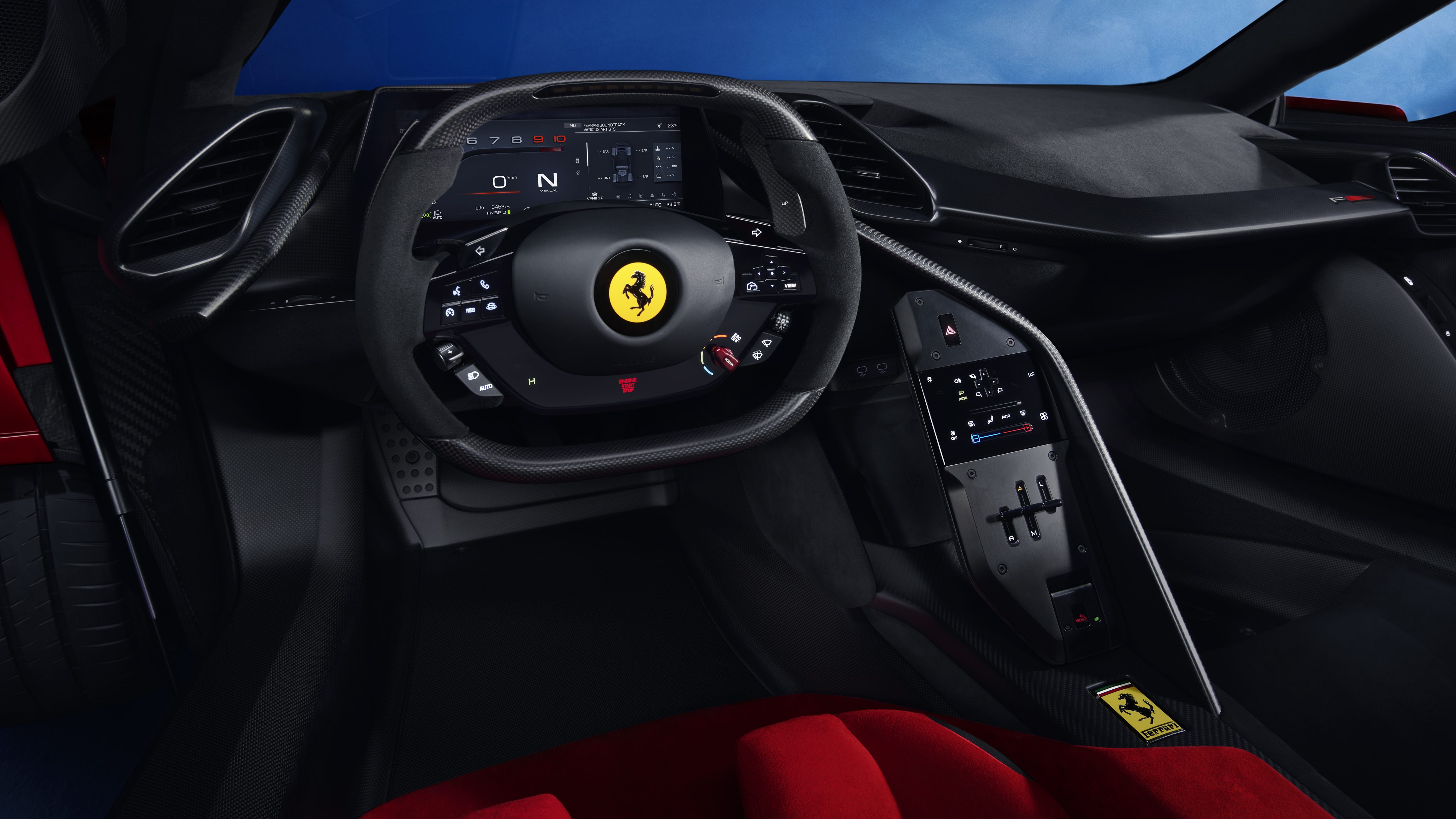

From £3m
The F80 badge is a special thing and Ferrari wouldn’t just append it to any of the mighty impressive cars it makes; it needed to go on something a little more exalted, as it completes a line which runs F40, F50, Enzo and LaFerrari.
Which perhaps means that some might be put off with the headline fact that the F80 has a “mere” V6 engine. That might not seem the most auspicious of starts, but two good things here: one, it’s related to the 499P competition Ferrari which has won at Le Mans, twice; and two, the V6 has twin electric turbochargers that liberate 888bhp from the petrol engine alone.
Augmenting this is some hybrid gear, powered by a 2.4kWh battery feeding three electric motors (like the Tourbillon, two on the front wheels and one at the back), which chuck another 296bhp into the mix and bring the F80’s grand total to 1,184bhp. The LaFerrari couldn’t even muster up 1,000bhp (topping out at 950). Tsk.
Anyway, what with its active aerodynamics, fully active suspension and dedicated focus to speed, the F80 promises to be outstanding to drive. However, despite the fact it costs £3 million, just 799 units will be built, and they’re all sold already. Therefore, you’ll have to ask one of the current “owners” very nicely if you want an F80. And be prepared to pay a lot more than £3m for it, as well…
Lamborghini Temerario
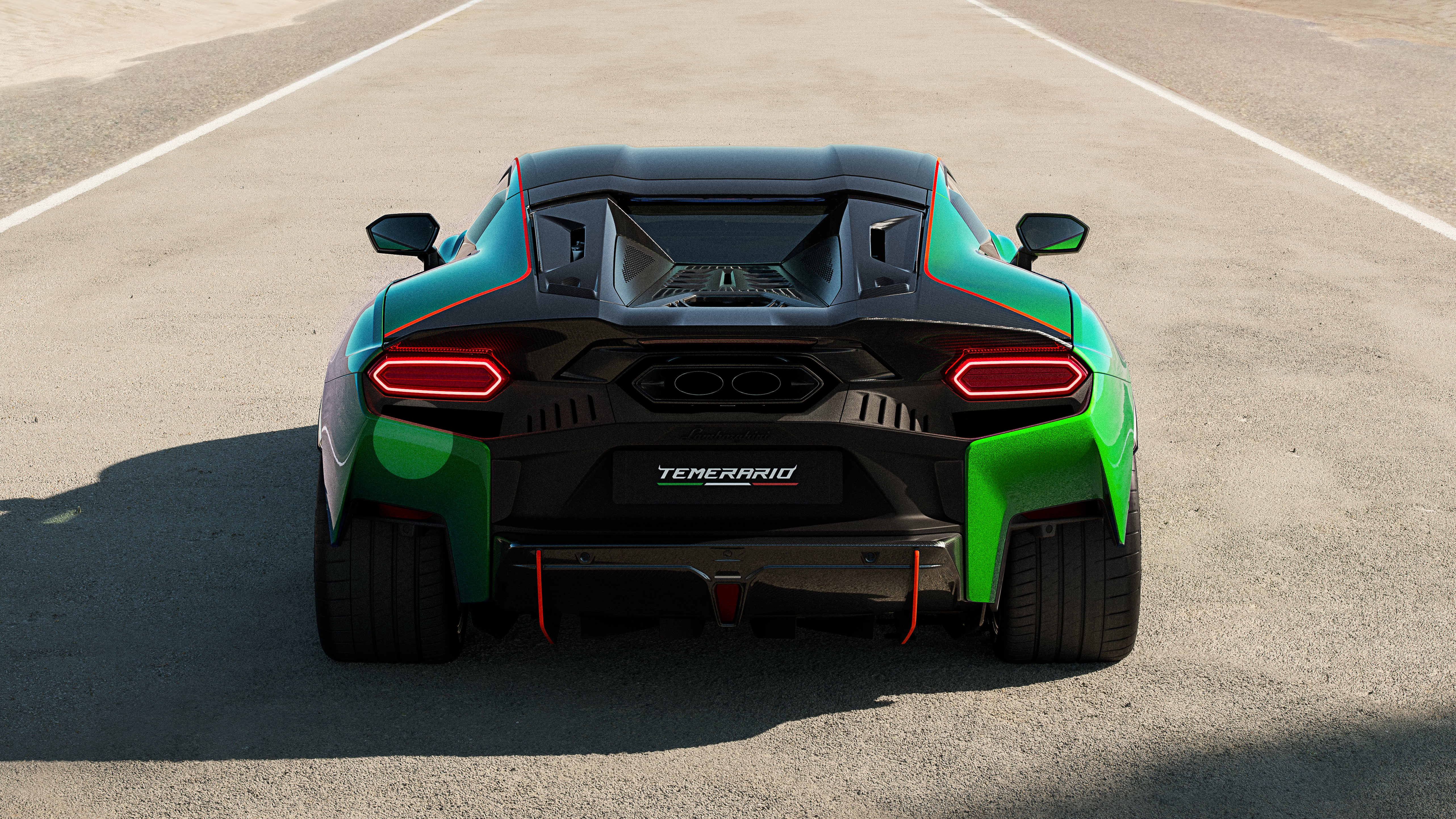
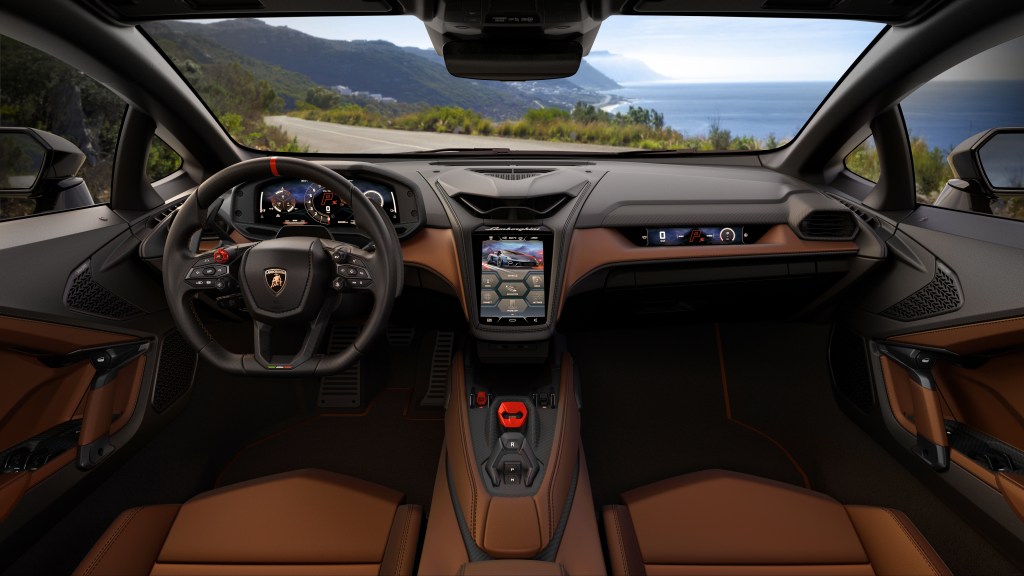
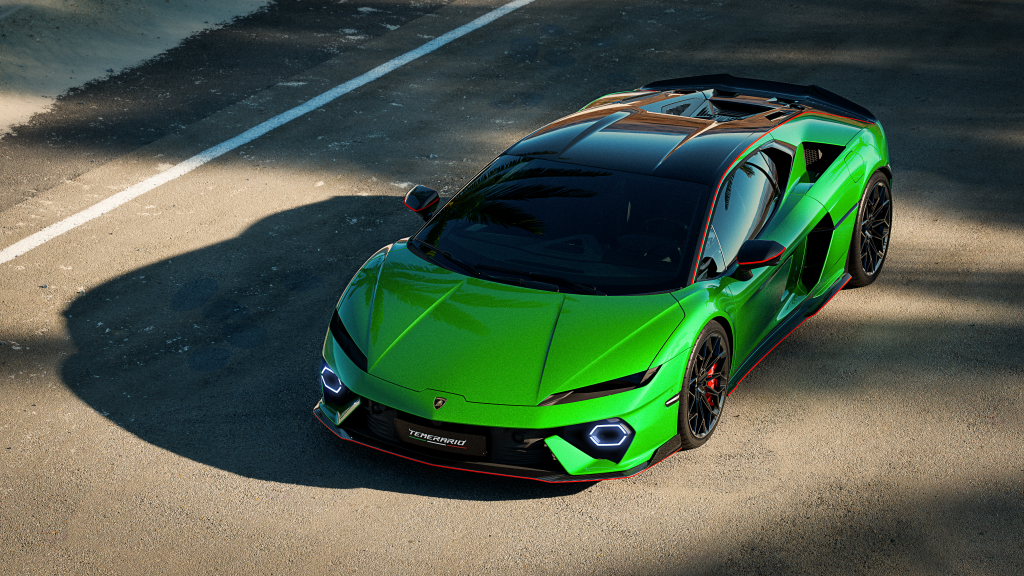
From c.£250,000-£300,000
While some car fans lament the electrification of everything, there are benefits to using electric motors to assist with performance models. For instance, the incoming Lamborghini Temerario is a direct replacement for the Gallardo and Huracan lines, and on the face of it the newcomer has been downgraded from a screaming naturally aspirated 5.2-litre V10 engine to a 4-litre twin-turbocharged V8.
But the Italian firm then supplements that with three electric motors (anyone spotting a pattern here?) to bring the Temerario to the giddy new heights of 907bhp. This is supposed to be the “baby”, entry-level Lambo, remember, and it stands in stark contrast to the most power the V10 in the Huracan ever gave out, which was a piffling 631bhp.
The performance of the Temerario is therefore of different orders of magnitude compared to its ancestors. It’ll run 0-62mph in just 2.7 seconds and go to a v-max of 213mph if you’ve got the space to test it, and with a V8 engine that revs to 10,000rpm at its core then the sound of the Lambo should still be as dramatic as long-time customers of the company expect.
It’s also dramatic to look at, with lots of the hexagon motif that has become Lamborghini’s trademark appearance dotted about the place – both inside the car and out. And Lamborghini insists it is not just fast, but also the most comfortable super sports car it has ever produced.
McLaren 750S
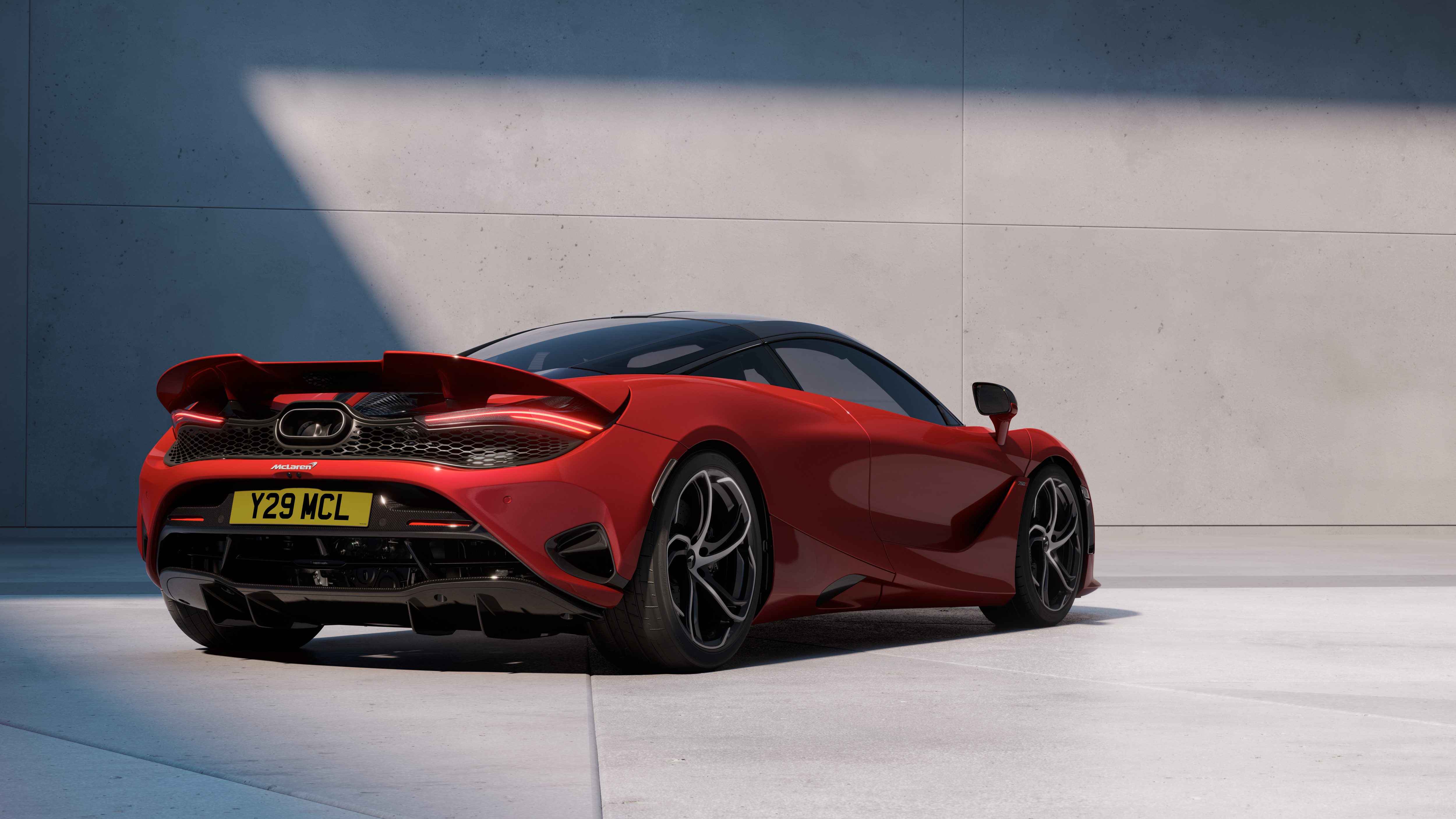
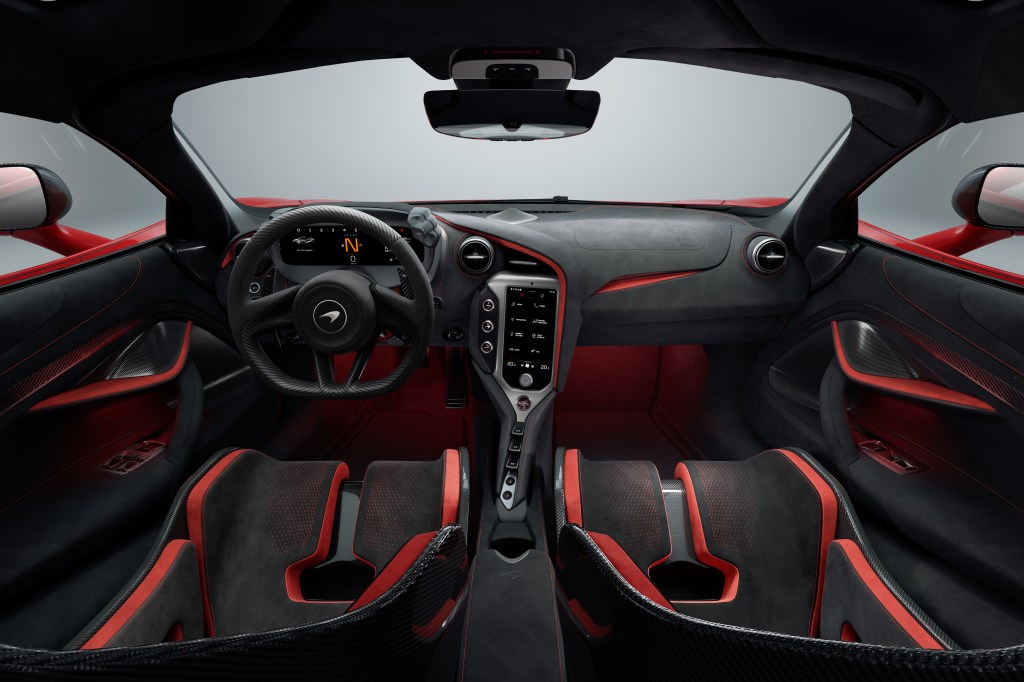
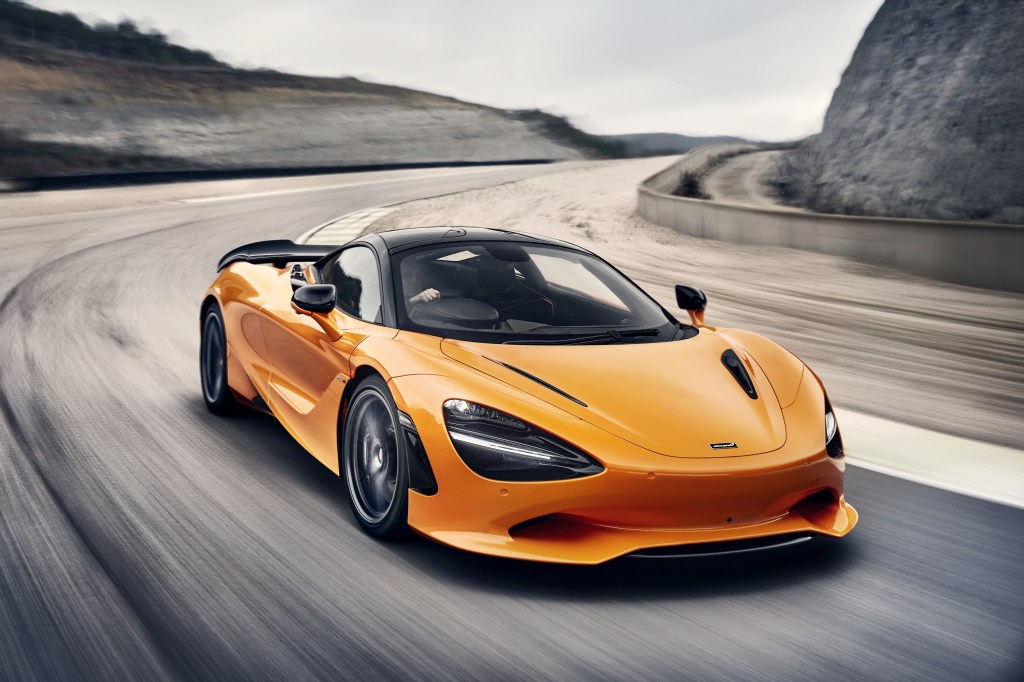
From £246,655
The last thing the McLaren 750S needed was more power, but that’s precisely what the British company has given it — as a swansong for the 4.0-litre biturbo V8 in its midst.
Yes, McLaren will also be going the hybrid path with its products going forward — it already has the petrol-electric Artura in its ranks — and it would appear they’re based on V6 architecture. Which means the 750S (named for its metric horsepower, which equates to 740bhp) is a last chance to get the company’s signature V8 in your life.
Luckily, the 750S is like the last, big firework at a public display — an utterly gobsmacking and mesmerising way to spend a lot of money. Even without electric augmentation, it can hit 62mph from rest in just 2.8 seconds and go on to a 206mph top speed.
The handling is lively and thrilling, and the McLaren has a superb cabin with some fantastic major touchpoints and a passenger compartment which is accessed through dihedral doors. Yep, they’re the ones that open upwards in true supercar style, for the maximum kerb appeal.
Related articles
- If you liked our article on the best supercars to buy in 2025, you might enjoy our review of a supercar for going off-road, the Lamborghini Huracan Sterrato
- Or read all about Bentley’s new “four-door supercar”, the updated Flying Spur
- Watch Will Dron’s video of the sci-fi inspired Ferrari 12Cilindri
Latest articles
- Seven great automotive events to visit this summer, from F1 to art and champagne
- Watch new Porsche 911 GT3 smash Nürburgring record for manual cars
- Skoda Elroq 2025 review: Czech carmaker can’t seem to miss with its electric family cars
- Five best electric cars to buy in 2025
- Should I buy a diesel car in 2025?
- F1 2025 calendar and race reports: The new Formula One season as it happens
- Zeekr 7X AWD 2025 review: A fast, spacious and high tech premium SUV — but someone call the chassis chief
- Denza Z9GT 2025 review: Flawed but sleek 1,062bhp shooting brake from BYD’s luxury arm
- Extended test: 2024 Renault Scenic E-Tech review


